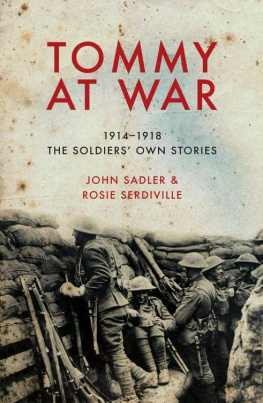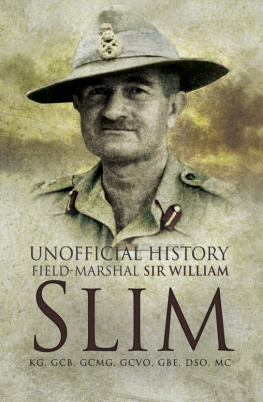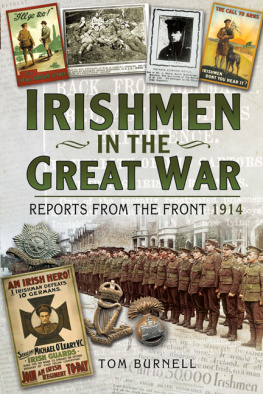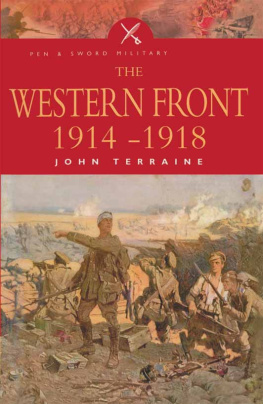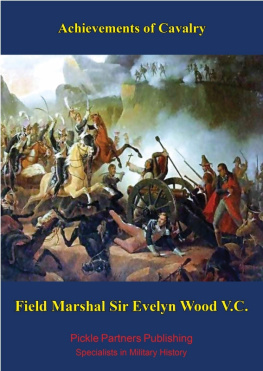This edition is published by PICKLE PARTNERS PUBLISHINGwww.picklepartnerspublishing.com
To join our mailing list for new titles or for issues with our books picklepublishing@gmail.com
Or on Facebook
Text originally published in 1926 under the same title.
Pickle Partners Publishing 2015, all rights reserved. No part of this publication may be reproduced, stored in a retrieval system or transmitted by any means, electrical, mechanical or otherwise without the written permission of the copyright holder.
Publishers Note
Although in most cases we have retained the Authors original spelling and grammar to authentically reproduce the work of the Author and the original intent of such material, some additional notes and clarifications have been added for the modern readers benefit.
We have also made every effort to include all maps and illustrations of the original edition the limitations of formatting do not allow of including larger maps, we will upload as many of these maps as possible.
SOLDIERS AND STATESMEN - 1914-1918
BY
FIELD-MARSHAL SIR WILLIAM ROBERTSON, BART
G.C.B., G.C.M.G., K.C.V.O., D.S.O.
VOLUME TWO
With Four Plates
CHAPTER VIIIHOME DEFENCE
Duties ExplainedPre-war Investigation of Invasion ProblemMr. Balfours Views on Possibility of InvasionInvestigation by Lord Morleys Sub-Committee, 1907Conclusions reachedInfluence of Possible Invasion on Outbreak of WarInvestigation by Joint Naval and Military Conference, 1916Troops maintained for Home DefenceFurther Investigation after Battle of JutlandReduction of Home Defence Force, February, 1917Final Investigation at end of 1917Air RaidsAdequate Defence of Home Country compulsory.
THE duties of Home Defence during the war were supposed by the general public to consist almost wholly of measures for securing the country against invasion, and the War Office was thought to be free to restrict or enlarge them as it might choose. But, in fact, they covered a much wider field than mere invasion, and included a series of obligations which the War Office was compelled to carry out and had little or no power to challenge. For example, at the commencement of the war there were in the United Kingdom a total of twenty-six defended ports, the selection of which had from time to time been made, and their relative importance fixed, not by the War Office, but by certain inter-departmental bodies who were charged with the consideration of all coast-defence questions. Some of the ports, such as Dover, Portsmouth, and Plymouth, were defended because they served as naval bases, while in the case of commercial waterways such as the Mersey, the Tyne and the Clyde, the chief object was to give protection to shipping. The Admiralty was the recognized authority for prescribing what was known as the scale of naval attack to which the several localities were deemed liable, and upon that scale the nature and strength of the defences were based. Before being finally adopted the scale was submitted for the sanction of higher authority and it was periodically reviewed, but in practice Admiralty opinion in regard to it was seldom or never questioned. The fortifications and armament required to meet the approved scale, often of an elaborate and expensive kind, were paid for out of Army funds, while the war garrisons allotted varied between 1,000 and 20,000 men each, according to the perimeter of the area to be defended.
In addition to these obligations there were scores of vulnerable points scattered about the kingdom, inland as well as on the coast, such as cable landing-places, wireless stations, railway bridges, magazines, factories, and depots which had to be guarded against evilly disposed persons within the country, if not against interference by outsiders. These, also, were selected for defence mainly by public departments other than the War Officethe Admiralty, Post Office, and Home Office, for instanceand absorbed in the aggregate many thousands of men, none of whom were available for repelling organized invasion.
To meet the latter contingency entirely separate and mobile forces were required, and, as already explained, the provision of them was at one time officially regarded as being the primary duty for which the military authorities were responsible. The fallacy of this policy was exposed by the South African war, 1899-1902, and three years later the Prime Minister, Mr. Balfour, went to the opposite extreme by stating in the House of Commons, when discussing the problems of Imperial Defence, that the serious invasion of these islands is not an eventuality which we need seriously consider. {1}
Although invasion was thus summarily ruled out as impracticable, raids were admitted to be feasible, and these, it was conceded, might be made on two or more places simultaneously and by hostile bodies varying in strength between 500 and 10,000 men each. Further, as they would probably occur, if at all, in the nature of a surprise and would finish within a few hours, it was also agreed that each of the localities exposed to them must in war-time always have a sufficient defence force of its own ready on the spot. The net result, therefore, of accepting the feasibility of raids and rejecting that of invasion was to leave the aggregate number of defence troops required no smaller than before. The only advantage to be derived from the change was the soothing reflection that the raiders would be but a temporary inconvenience, since they would quickly depart of their own free will, whereas the invaders, should they come, would remain in the country until forcibly expelled.
Lord Roberts and other prominent men associated with him drew public attention to the danger incurred by the acceptance of the no-invasion theory, and this, combined with recent changes in the European situation, led the Liberal Government, in 1907, to appoint a subcommittee of the Committee of Imperial Defence, under the chairmanship of Lord Morley, to examine the question afresh. {2}
The soldiers did not, of course, contest the principle that the first line of defence was the Navy, but they held that the problem was so surrounded with uncertainties that naval protection alone was not an adequate insurance against attack. The Navy had but little first-hand experience of modern war, and as everybody knows, long periods of peace are apt to engender unsound ideas as to what is practicable and what is not. Steam had supplanted sails since Nelsons day; fleets of transport could be dispatched from enemy ports in all weathers, and could effectively combine their action at a fixed time and place; and in various ways invasion had become an easier, and therefore a more attractive, enterprise than in the past, especially to a country like Germany who was saturated with the belief that offensive action was the one and only means by which success in war could be attained.
Feasibility of invasion was, moreover, not the only factor to be considered, nor perhaps the most important one. What the soldiers feared was that when war came the bare probability of invasion would compel the Government, in order to allay public anxiety, to detain troops at home at a time when they were urgently needed for employment abroad. They argued that no matter how confidently we might talk in peace, when confronted in war with an enemy possessing millions of troops, abundant sea-transport, and an undefeated fleet within a few hours steaming of our shores, no Government would dare to rely upon the Navy alone for giving the country that immunity from insult and injury which it would expect to enjoy. Our own Fleet must, too, as the sailors themselves were never tired of asserting, be free at all times to move about the seas as and where circumstances might require. This it could not do if tied down by the responsibilities which attach to the duties of Home Defence.







